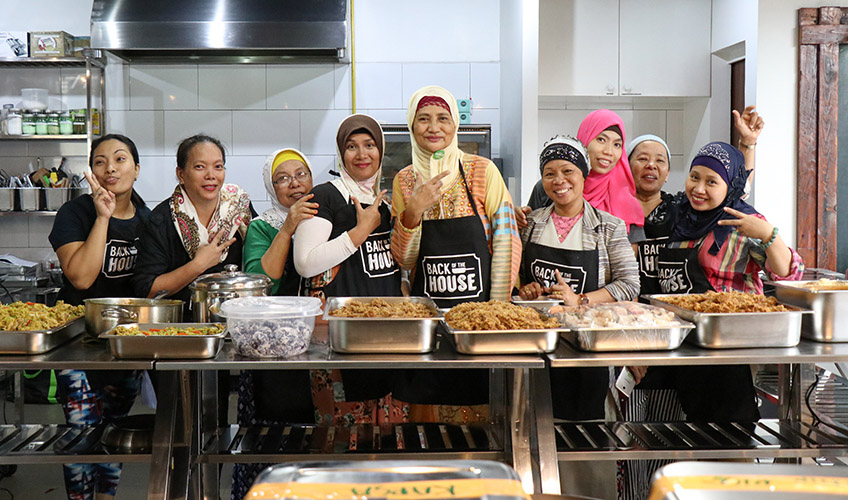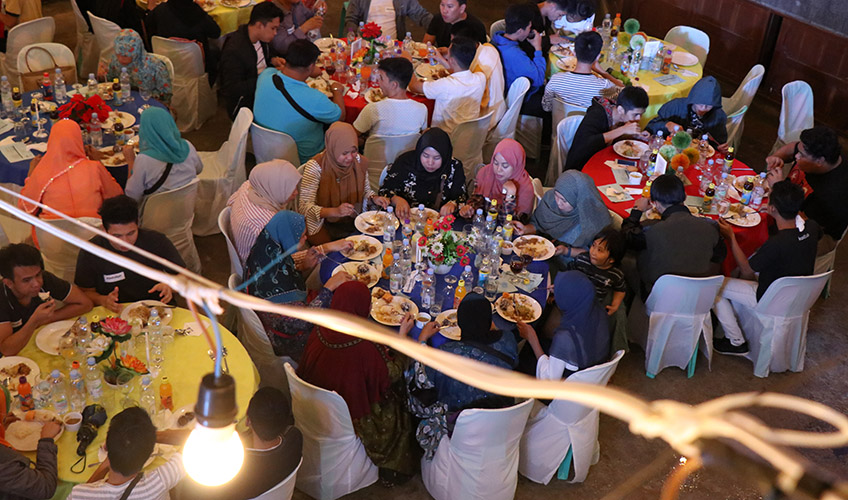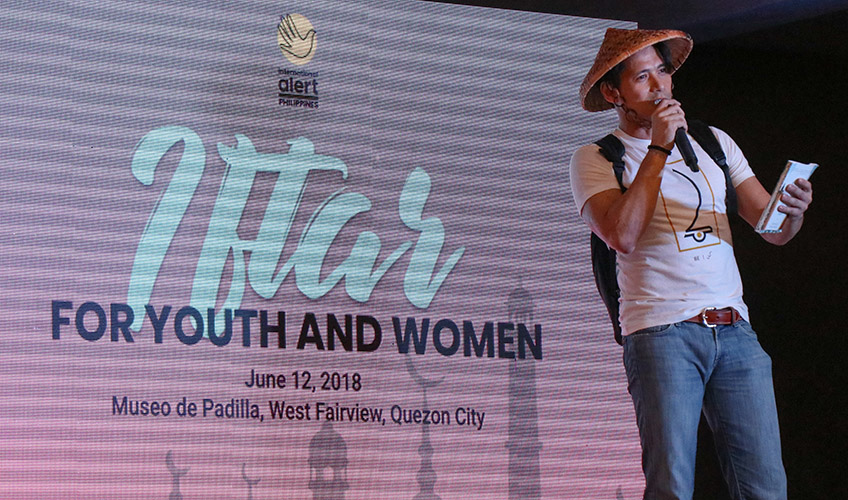Muslim youth and women break fast together to fight discrimination
Some 160 women and young people from the three Muslim communities in Manila, the Philippines, gathered Tuesday for iftar – the breaking of the fast during the holy month of Ramadan – to fight discrimination and celebrate diversity through food.
Nine women (pictured below) from the communities prepared and served regional Moro dishes at the iftar, hosted by International Alert with support from the New Zealand government.
During the event, we showed ‘Crescent Feast‘, a 10-minute documentary on how food can promote cultural understanding and bridge religious divides.

International Alert Philippines country manager Nikki de la Rosa stressed that there is bigger work ahead for women and youth in the Philippines, especially in advocating for the passage of the Anti-Discrimination Bill, which would protect the rights of religious and indigenous minorities and ensure equal socio-economic opportunities for all.
According to de la Rosa, Muslim youth and women experience so much discrimination solely because of their faith. They face difficulty getting jobs if they have Arab-sounding names, or they are not allowed to practice their faith freely – many women are told to remove their hijab in the work place.
Such discrimination stems from common prejudices that non-Muslim Filipinos have towards Filipino Muslims, who they consider violent and untrustworthy and to be avoided.

“International Alert believes that sharing food is one way to address this lack of understanding”, de la Rosa explained. “When introduced to different types of Moro food – whether Meranao, Maguindanaoan, Tausug, Yakan or Sama – we are opened to new ways of tasting and thinking. We realise that we are more alike than different.”
“Hopefully, we can begin appreciating, instead of fearing or condemning our Muslim brothers and sisters. We will know that there is, in fact, no ‘other’, because we have the same love for food, for gathering, for celebrations, for country,” de la Rosa stressed.

Actor and peace advocate Robin Padilla (pictured above) graced the occasion, which was held at his property, Museo de Padilla. He extolled the role that women and youth play in peacebuilding. He said that for him, solidarity meant doing good for others without expecting anything in return. Padilla urged both Muslims and non-Muslims to follow the teachings of their religion and work for peace.
That morning, nine women from the three communities cooked the celebratory meal at Back of the House Collab Kitchen in Quezon City. The dishes included kapsa (an Arab-inspired chicken and basmati rice dish), Maguindanaoan beef rendang, Meranao piaparan (stewed chicken with turmeric, grated coconut and coconut cream) and daral (a Tausug dessert of sweetened young coconut spring rolls).




